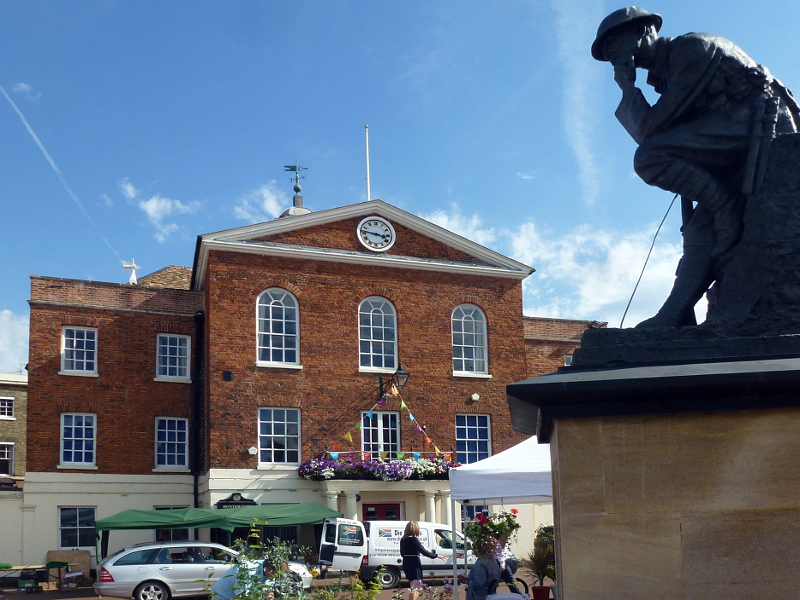 |
| In Huntingdon |
On 12th January Sean went on his own as Matt and I were at Open Door in St Neots. And on 19th Matt, Kevin and I visited Huntingdon with flasks of Donna's tomato soup.
I'd better backtrack a little. Kevin is a friend from Caffè Nero in St Neots. He's part of a group of local people I've got to know quite well by visiting Nero's between 15:00 and 16:00 several times a week. With a swollen ankle and visitors over the Christmas period it's been quite a while since I was there.
Meeting on the street - I had met a group of the Nero guys in town. They were chatting in the street and I stopped to join the conversation. It crossed my mind to invite Kevin to join us on 19th, and I was amazed by his enthusiasm to come along and help with the soup run. Matt and I loaded the soup, rolls and paper cups into the car and collected Kevin from Nero's. John and Gordon were there as well and they were very supportive of Kevin.
When we arrived in Huntingdon we spent some time walking, chatting with people who were willing to talk (and a few who were not), and offering soup. We visited the river bank, a play area, the bus station, the High Street, and other parts of town. But we failed to give away a single cup of soup.
A special encounter - We sat by the fountain, warmed up our hands with some of our own cups of soup, and chatted. Just as we were considering leaving, we were making our way along the High Street and saw a man sitting on a disability scooter. Kevin was very clear and definite at this point, walking right up to the man and offering him soup [Tweet it!]. After a few moments he said he would like soup and Kevin gave him some from one of our paper cups.
Soon we began chatting about football and other things. Gerald told us a bit about himself and explained that he was waiting for his wife who was in one of the shops nearby. When she returned we chatted briefly with her too, and then I asked Gerald if we could bless him. He agreed, so we prayed a short prayer for him and for his wife before saying goodbye and heading home. Gerald wanted to shake us all by the hand before we left, there was a real connection between us.
All three of us felt we were in Huntingdon that morning specifically to meet Gerald and his wife. It's not that the walking and talking in and around the town centre wasn't good. It was good but it wasn't special. Meeting Gerald was special, and we knew it.
We don't know what will come of this. We don't know if we'll meet Gerald again. We will continue to pray for him and for his wife. And we are excited about what is happening in Huntingdon!
Questions:
- What makes a meeting special? Is it about us, or about the person we meet, or about the Almighty who arranges our day if we are following him?
- Matt and I almost passed by the one person we were supposed to meet in Huntingdon. But Kevin's eyes, mind and heart were wide open. What might you miss in your own life if you are not fully awake and open?
See also:
- Caffè Nero
- Chat at Nero's - Journeys of heart and mind
- Crowds are fed, The - Journeys of heart and mind
- Huntingdon - Wikipedia
- John, food for thousands - Cruising the gospel
- St Neots - Wikipedia
- Sharing soup with strangers - Journeys of heart and mind






